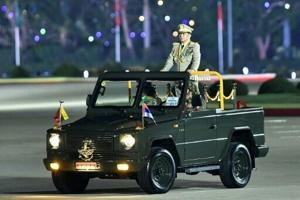Myanmar’s ruling military junta has officially lifted the nationwide state of emergency, signaling accelerated preparations for a highly anticipated December election that has already drawn significant global scrutiny.
This move comes nearly three years after the military seized power in a coup d’état in February 2021, overthrowing the democratically elected government led by Aung San Suu Kyi and plunging the nation into profound political instability.
The coup immediately sparked widespread resistance and ignited a multifaceted civil war across the country, which has tragically claimed thousands of lives and displaced millions, creating an ongoing humanitarian crisis.
Opposition groups within Myanmar have vehemently declared their intention to boycott the upcoming polls, dismissing them as a sham designed to legitimize the military’s continued grip on power rather than a genuine exercise in democracy.
International observers and human rights organizations have echoed these concerns, cautioning that the electoral process lacks the necessary conditions for freeness and fairness, further questioning the legitimacy of any outcomes.
Analysts closely following Myanmar politics widely anticipate that junta chief Min Aung Hlaing is poised to secure a pivotal role following the contentious election, potentially solidifying his authority as either the nation’s president or the supreme armed forces commander.
The cessation of the state of emergency, while superficially suggesting a return to normalcy, is viewed by critics as a strategic maneuver to create a façade of constitutional governance ahead of an election widely expected to entrench military rule.
The international community remains deeply concerned about the trajectory of Myanmar, urging a return to genuine democratic processes and the protection of human rights amidst the continuing Civil Conflict and humanitarian challenges. The nation’s future hinges on meaningful engagement and a resolution to its complex Myanmar Politics.






Leave a Reply